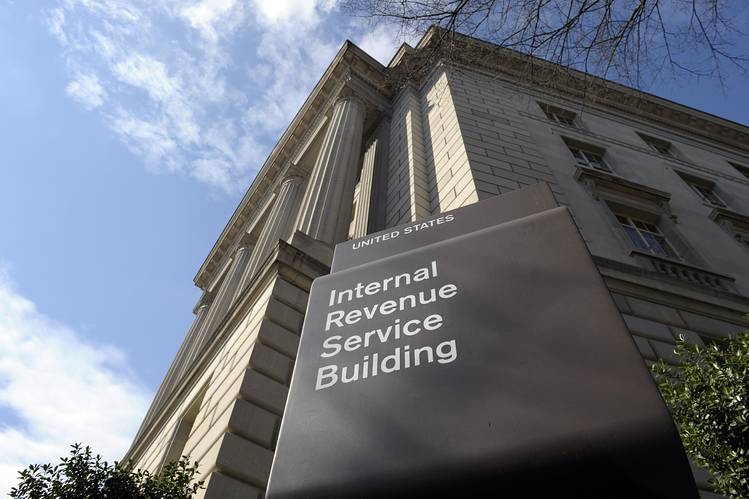How to Avoid Filing Offshore Tax Returns – IRS Form 5471 & FBAR
Any offshore business owned and operated by a US citizen must file IRS Form 5471, an FBAR, and disclose all of its dealings to the US government. Here, you will learn how to legally reduce or eliminate these filing and disclosure obligations.
Most importantly, you must file US Treasury Form TD F 90.22.1 (generally referred to as the FBAR) if you have more than $10,000 in an offshore bank account or accounts, IRS Form 5471 if you operate your business through an offshore corporation, and IRS Form 926 if you transfer money or assets to an offshore corporation.
If you are a US citizen and the sole owner of the business with no non-US partners, then you are stuck filing these forms in their entirety. Basically, you must handle accounting and reporting of your offshore business just as you would if your business was in the United States.
As such, the IRS has the right to audit your offshore business and refuse to allow deductions for any expense you are unable to justify under the US tax code. It does not matter what the accounting and tax practices of your country of operation are…US citizens must report and pay tax in the US based on US tax an accounting standards.
If you do have partners who are neither US citizens nor US residents, then you have some planning options. First, if you have complete trust in your partner, then he or she can be the sole signer on the bank account, which means you are not required to file the FBAR.
The same is true of IRS Form 5471, the offshore corporation return. If the business is owned solely by a non-US person, and you are an employee, then the entity has no US reporting requirements.
It is important to note that I am talking about true ownership, not just some nominee director put in place to skirt the rules. This will not work and can land you in hot water with the Feds. The FBAR must be filed by anyone who has signatory rights or control over an offshore account and IRS Form 5471 must be filed by anyone with significant ownership, control, or voting rights in an offshore company.
With that said, unless your non-US partner is your spouse, it is probably impractical to give up complete control of a business just too avoid dealing with the IRS. But, there are varying levels of ownership and control that you can utilize to reduce the amount of information you must provide the US government.
For example, maybe you can structure a joint venture between an offshore corporation you own and your non-US partner’s corporation. In this way, you can bring in to your entity only what you wish to report to the IRS, possibly an amount which will match up with the Foreign Earned Income Exclusion.
Next, consider your filing obligations prior to completing your incorporation. Portions of IRS Form 5471 are required of any US person owning or controlling 10% or more of the stock and your reporting obligations increase as your ownership increases. For this purpose, a US person is a US citizen or resident and the 10% ownership requirement is defined as follows:
- 10% or more of the total value of the foreign corporation’s stock or
- 10% or more of the total combined voting power of all classes of stock with voting rights.
This is to say that US person or persons may own 9% of the company and have no IRS Form 5471 reporting obligation. If you find yourself in a partnership where you may choose to hold 15% or 9%, then it may be in your best interest to hold 9%. Also, you may benefit from the use of option purchase agreements, or other forms of contract, that do not impart ownership or control of the business.
If you own or control 10% or more of the stock of a foreign corporation, but not more than 50%, then you have reduced IRS Form 5471 reporting requirements and you may pay less in US taxes. Again, if you have the option of taking 50% or 51% of a venture, with the balance going to a non-US person, you might elect 50% to minimize your filing and paying obligations.
In the year you form the company, or acquire your 10%+ interest, you must file a full tax return for your offshore corporation on IRS Form 5471, reporting ownership, transfers, income, expense and a balance sheet. In subsequent years, you need only provide the following:
- The identifying information on page 1 of IRS Form 5471, not including Schedule A,
- Report special ownership interests the company may have, such as in trusts, other foreign entities, cost sharing arrangements, or other complex holdings reportable on Schedule G.
- IRS Form 5471 Schedule O, reporting the names of US officers, directors and shareholders, as well as transfers of stock.
In most cases, the Form 5471 return due for a company with US shareholders owning and controlling 50% or less is quite simple in year two and beyond. It should be a mere formality with no income and expense or balance sheet information required.
By contrast, the return due for a company which is controlled by US persons is quite complex and imparts filing obligations on everyone, including US shareholders who are not involved in the business.
When US persons own more than 50% of an offshore company, that entity is classified as a Controlled Foreign Corporation (CFC) by the IRS. As such, a full corporate tax return, with balance sheet, retained earnings statements, income and expense report, and a host of other information is required. The return consists of IRS Form 5471, as well as Schedules A, B, C, E, F, G, H, I, J and M. I won’t go in to each, so please take my word that preparing this monstrosity is a lot of work.
- If you are a shareholder in a CFC, but not involved in the business, you must file IRS Form 5471, along with Schedules G, H, I, and J. For additional information, see Category 5 filers.
More importantly, when an offshore company is classified as a CFC, it is unable to retain certain types of income. As such, these profits or transactions must be reported by the shareholders and taxed in the US, just as they would be with a US LLC or S-Corporation, regardless of whether any money is distributed.
CFC Income, or Subpart F income as it is commonly referred to, includes the following:
- Certain types of insurance income;
- “Foreign base company income,” which covers certain dividends, interest, rents, royalties, gains and notional principal contract income; income from certain sales involving related parties; income from certain services performed outside the CFC’s country of incorporation, for or on behalf of related parties; and certain oil related income;
- Income connected with certain sanctioned countries;
- Income from operations in which there is cooperation or participation in an international boycott of Israel; and
- Illegal payments made to a foreign government or agent.
Obviously, item two above is the one relevant to most business owners. The bottom line with this clause is that the shareholders of a CFC must pay tax in the US on passive income and related party transactions, where, had they been shareholders in a company with 50% or less US ownership, no such tax would have been due.
Finally, as a CFC, you may be limited in your ability to retain earnings and profits which result from loans or other debt obligations of US shareholders. This is true even if those profits are the result of an active business, rather than the passive income listed above. For additional information on this, and other CFC issues, see the IRS Audit Guide.
So long as you have US partners, there are a number of tax planning options for those operating a business offshore. We at Premier can assist you to structure such a business and keep it in compliance with US authorities. For additional information, and a free confidential consultation, please contact me at info@premieroffshore.com or call (619) 483-1708.











Leave a Reply
Want to join the discussion?Feel free to contribute!